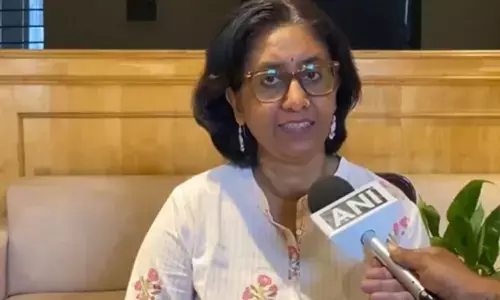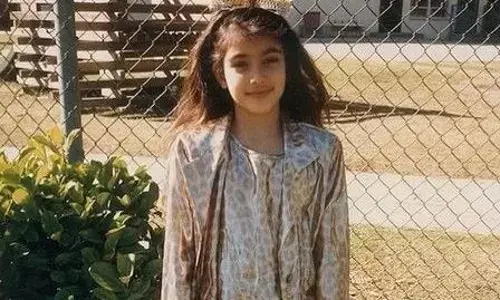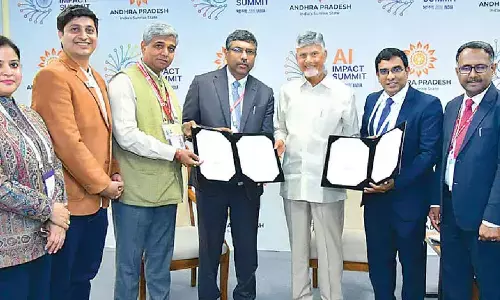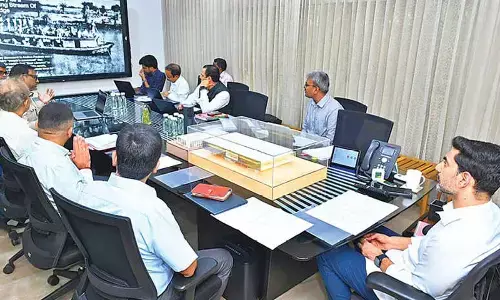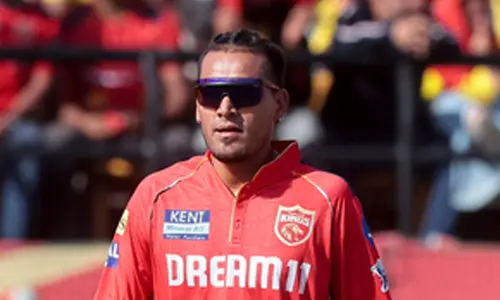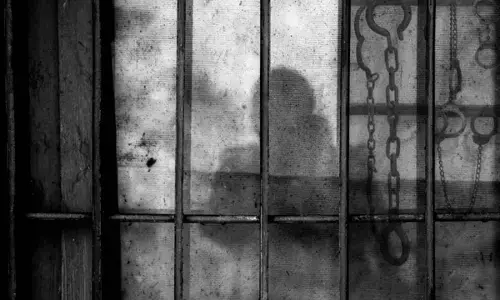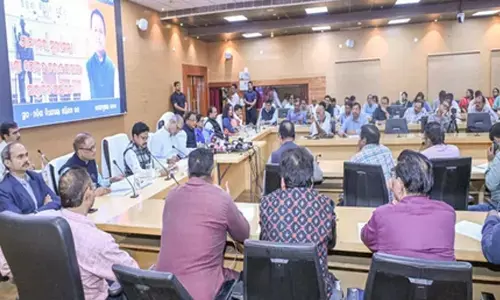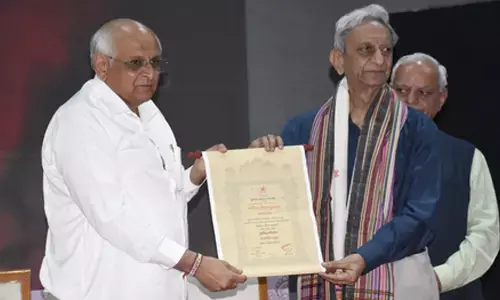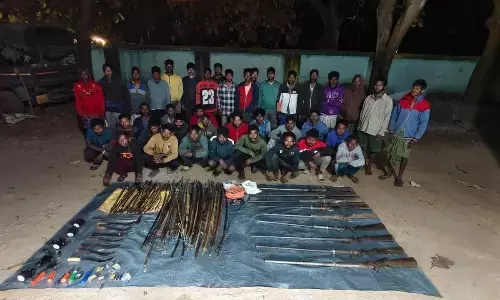Making of a world leader

Narendra Modi has completed four months as Prime Minister on Friday. Many have written their judgments on his completion of 100 days, though he has almost five years to prove his leadership. For a country, which lacked a bold and courageous leader for almost three decades, the emergence of Narendra Modi was indeed a revelation.
.jpg) Narendra Modi has completed four months as Prime Minister on Friday. Many have written their judgments on his completion of 100 days, though he has almost five years to prove his leadership. For a country, which lacked a bold and courageous leader for almost three decades, the emergence of Narendra Modi was indeed a revelation. Going by the American and British standards to become the President and the Prime Minister of the two respective countries, Modi is perhaps the third most eligible Prime Minister to hold the top office in India after Jawaharlal Nehru and Indira Gandhi, though the latter came to power by fluke.
Narendra Modi has completed four months as Prime Minister on Friday. Many have written their judgments on his completion of 100 days, though he has almost five years to prove his leadership. For a country, which lacked a bold and courageous leader for almost three decades, the emergence of Narendra Modi was indeed a revelation. Going by the American and British standards to become the President and the Prime Minister of the two respective countries, Modi is perhaps the third most eligible Prime Minister to hold the top office in India after Jawaharlal Nehru and Indira Gandhi, though the latter came to power by fluke.
Except for the dark days of Emergency, Mrs Gandhi could be compared to Britain’s Iron Lady Margaret Thatcher, for her courage during the 1971 war that liberated Bangladesh from Pakistan. The bank nationalization, abolition of privy purses to former rajas and splitting the Indian National Congress to her advantage, declaring Emergency and putting behind bars top national leaders, though very unpopular, were some of the hard decisions taken and executed by her. Both Chacha Nehru and Indiramma, who rubbed shoulders with their contemporary world leaders, were the darlings of the people especially the poor.
In the last four months of the Modi government, India witnessed many highs and a few lows. As Prime Minister, Narendra Modi has undeniably shown his assertiveness. “Minimum government and maximum governance” can be seen throughout in almost every decision the government has taken. Modi not only laid strict guidelines, but also gave a free hand to the bureaucrats. He wants performance so much so that he has assured full support to the officers who work in public interest. The Prime Minister has even reportedly shared his own phone number with the officials so that he can be reached directly.
Letters have often been a powerful tool in politics. Gandhiji used to correspond with the people through letters which he published in Young India. Narendra Modi too has added them in a manner of connecting with the people. Ahead of Teachers’ Day, Modi wrote an e-letter addressed to all teachers asking them to widen the horizon of students’ thought process. He widely uses twitter to convey his ideas and feelings to the people. After a decade of a Prime Minister in silent mode, the Indian voter was looking for a leader who would constantly communicate with them, who would bring the same energy and innovation that his campaign rhetoric had promised.
His Independence Day address was compared by many with that of India’s first Prime Minister Jawaharlal Nehru. That he called himself a sewak was typical of Modi – it was an attempt to try and project himself as an outsider in Delhi’s VIP culture, almost a hark-back to the chaiwallah card he played so successfully in the election campaign. By making sanitation and toilet-building a key element of his speech, he effectively changed the terms of what constitutes nation-building. His idea of a toilet in every school is revolutionary because it calls for a shift in priorities. It is both an indictment and a call to action for a nation that aspires to be on the global high table but where millions have to still defecate under the open skies. “That Modi has linked his Clean India campaign to the Mahatma’s 150th birth anniversary celebrations is a brilliant symbolism, there can be no better tribute to the Father of the Nation than a drive to clean up our streets. Modi’s commitment to cleaning up India will be best tested in his Varanasi constituency. If he can bring hygiene to Kasi’s putrefying streets, he will truly have delivered on his Independence Day message,” writes Rajdeep Sardesai.
His address to students and teachers on September 5 was a masterstroke which ordinary political leaders could not even think of. For the first time a Prime Minister in India had interacted with students in such a manner. It certainly raised the importance of Teachers’ Day. Although it was not a bad idea for the Prime Minister sharing thoughts with young people, making it mandatory for schools and their students to watch it, smacks of an authoritarian attitude.
Modi is slowly emerging as a world leader after his meeting with the SAARC leaders, especially Pakistan’s Prime Minister Nawaz Sharif, leaders of the BRICS countries in Brazil, his trip to Japan and the three-day visit of Chinese President Xi Jinping to India. Today he will be addressing the United Nations General Assembly in Hindi following a precedent set by Atal Bihari Vajpayee. American President Barack Obama is looking forward to their meeting scheduled for September 29.
Modi came to power promising “achche din” to people, but the common man is yet to find any difference to his life. The prices of essential commodities are rising by the day and there is no clarity as yet on the Food Security Act, which the UPA government had painstakingly passed in Parliament. Meanwhile, the possibility of Modi becoming an all powerful authoritative figure cannot be ruled out. There are certain aspects of authoritarianism in his leadership. For instance, his style of closed door meetings and decision-making does not appear transparent and inclusive.
Modi no doubt is a confident man, he is a brilliant orator. But there is a certain mix of arrogance and conviction with which people might get carried away. There is an air of insecurity among the minorities and the government needs to ensure that the minority rights are respected. He must make sure that the BJP leaders and the Sangh Parivar do not engage in hate speeches and the banner of communalism is not raised in any form.


